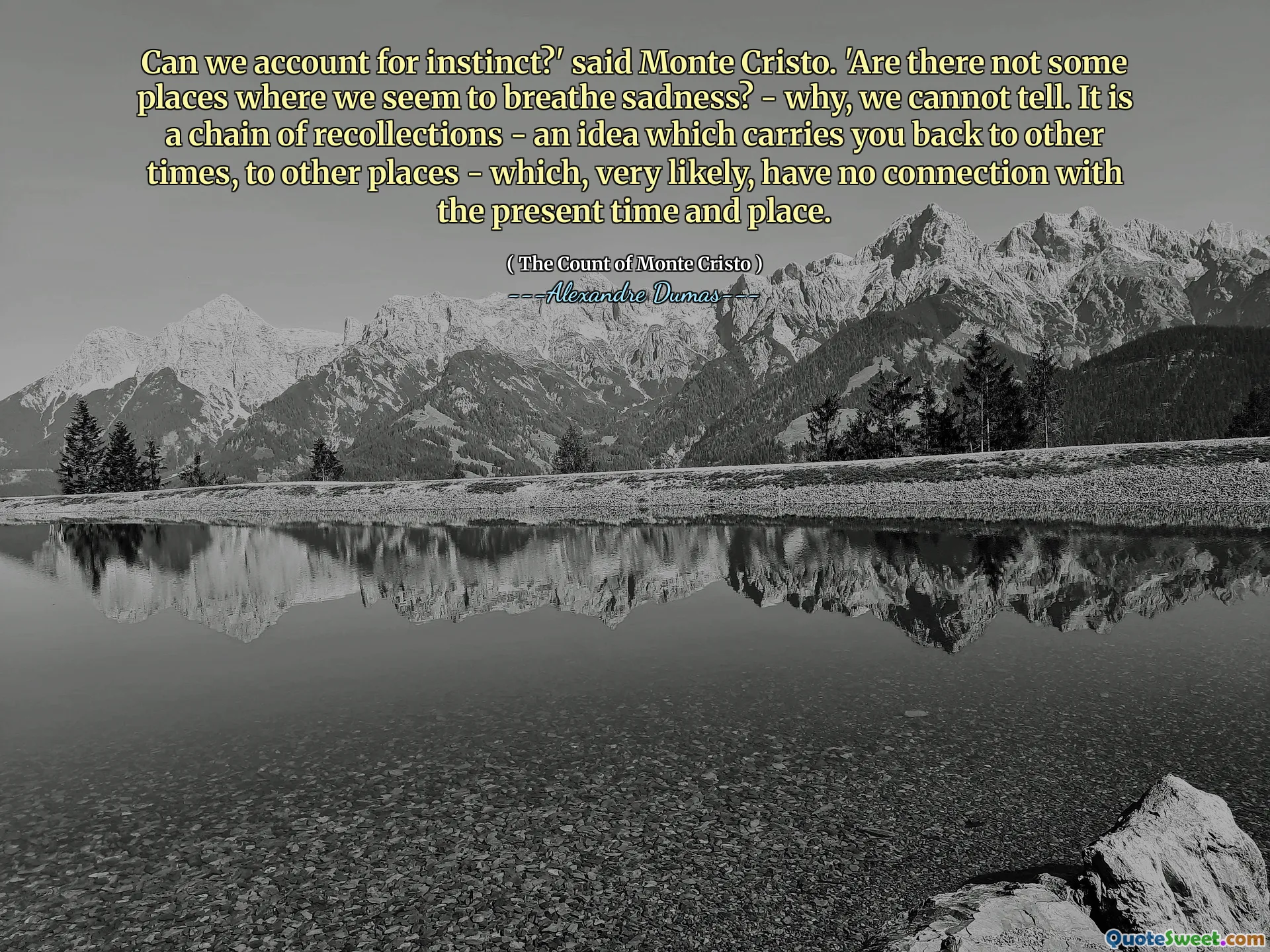
Can we account for instinct?' said Monte Cristo. 'Are there not some places where we seem to breathe sadness? - why, we cannot tell. It is a chain of recollections - an idea which carries you back to other times, to other places - which, very likely, have no connection with the present time and place.
This quote from Alexandre Dumas' The Count of Monte Cristo eloquently explores the mysterious nature of human instinct and the emotional resonance certain places hold over us. Monte Cristo muses on how instinct, this innate sense or impulse, often remains unexplainable, especially when it comes to feelings evoked by certain environments. The idea that some places seem to envelop us with sadness, without any immediately apparent reason, touches on a profound human experience — the way memory and emotion are intertwined yet not always consciously understood.
The metaphor of a "chain of recollections" is powerful, suggesting that these feelings are not isolated but linked to past experiences, people, or places that may exist far away in our personal history — in both time and space. This network of memories shapes our emotional responses, often appearing spontaneously, reminding us that the present is deeply connected to the past in subtle, sometimes inexplicable ways.
I find this reflection compelling because it acknowledges the depth of human psychology and the complexities of emotional memory. It raises questions about how we perceive and process the world around us, emphasizing that much of what we feel comes from unconscious connections rather than rational thought alone. Moreover, it touches on a universal truth—the nostalgia and melancholia felt in certain places, a sensation many have experienced without being able to pinpoint its origin.
Ultimately, the quote invites us to embrace the mysteries of our own minds and the unseen ties that link our emotions to the tapestry of our histories, even if they defy direct explanation.





